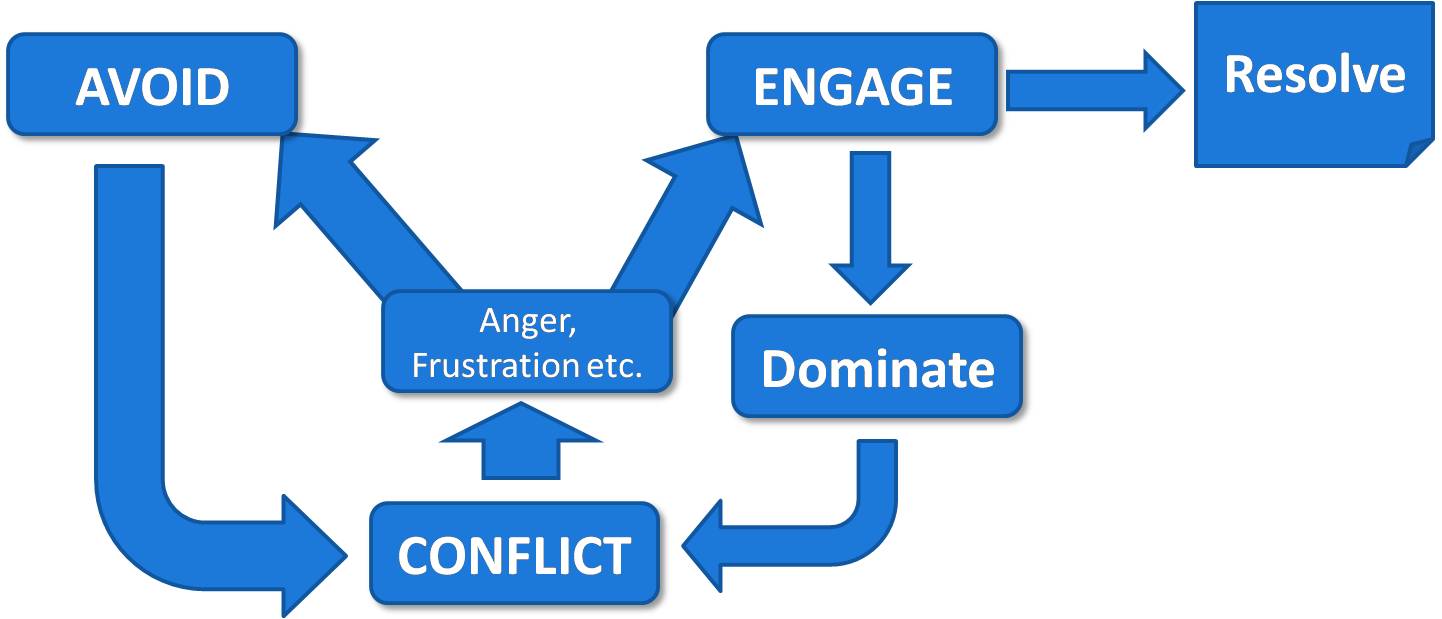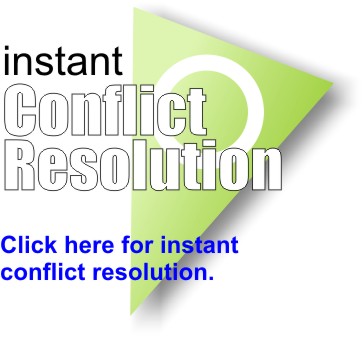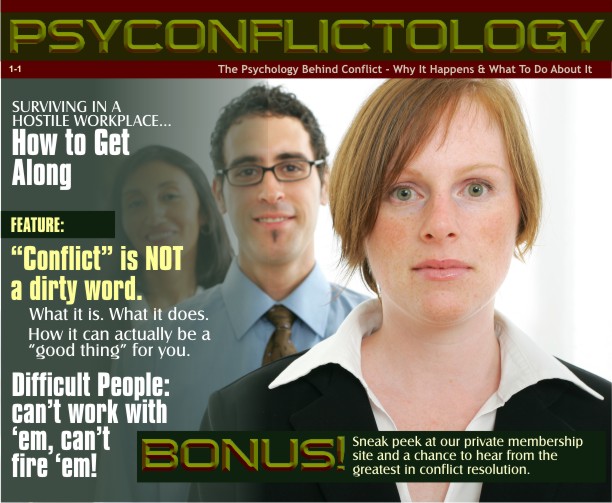|
In any conflict situation, we have
several choices to make. The first choice is whether to avoid or engage. If you choose to engage, then you can
choose to try to force your way and dominate or to work to resolve the conflict using effective communication
techniques?
Use this chart to map out your typical
response to conflict and use the conflict resolution information below to help you map out a better conflict
resolution strategy.
Three causes of
conflict
This is not intended to be an exhaustive
list, but in my experience with thousands of people, most conflicts can be traced to one of these three root
causes.
 |
Mismatched values
hierarchies
Simply put, a "value" is
what a person believes to be important.
Each person's values are
arranged in a hierarchy with the most important value on the top and the least important value on
the bottom. Our research has revealed that people will always seek out their highest value on the
hierarchy.
When people or
organizations have different values, or have the same values in a different order, there is the
potential for conflict. The higher the values that are mismatched, the stronger the conflict will
be.
For example here are the
natural values hiearchies(1) or men and women with regard to
relationships:
|
|
Men
|
Women
|
|
- Sexual fulfillment
- Recreational
companionship
- Attractive spouse
- Domestic support
- Admiration
|
- Affection
- Conversation
- Honesty and openness
- Financial support
- Family commitment
|
|
As you can see (and
probably know from experience), because of these different hierarchies, there is a natural tendency
toward conflict. This same thing happens with other values in
organizations.
The way to resolve a
values conflict is to find a higher value than the ones in conflict that all parties can agree
upon. The two primary techniques for doing this are:
- Chunking up and
down
- Perceptual
positions
|
 |
Attributing bad
motives
Are they really out to
get you?
Do they really do this
just to make you mad?
Examine the motives that
you attributing to the other parties in the conflict and then ask yourself this empowering
question:
What else could this
mean?
You will be delighted
with the answers that you discover!
|
 |
Failure to compensate for different
perspectives
We all have a unique set
of values, beliefs, and past experiences that color how we interpret events. These factors combine
to create our “personal perspective,” and these perspectives color our interpretation of words and
events.
It's entirely possible
for two people to have exactly the same experience and yet take completely opposite meanings for
the experience.
When we fail to take the
time to understand the perspectives of others, the even simplest events can deteriorate into
conflict.
Read more (click here).
|
Realize this about
conflict...
 |
You can't "fix" other
people.
It is difficult enough to change ourselves... and almost impossible to change
someone else. Because you can only control yourself, adopt the first dynamic of effective communication and take
responsibility for the outcome of the situation.
|
|
|
 |
There will always be dificult
people.
The problem is not that there are difficult people. The problem is that we
expect there NOT to be difficult people!
Here's how NOT to deal with people.
|
|
|
 |
YOU are someone else's difficult
person.
You may not have
realized it before now, but there is a good chance that some one finds it difficult to get along
with you. Stop for a moment and think of who it might be and then decide what you can do to smooth
your relationship with them.
|
|
|
 |
No one can control how you
feel.
Unless you let
them.
If someone makes you happy or sad, or depressed,
or angry, resolve right now not to allow them to control you in the future. No one can
control how you feel unless you give them permission to do so. Now is the time to take
control.
|
|
Instant and easy conflict
resolution for you (or someone you know) is as close as clicking on the image below.
:)
|

1 - William Harley in His Needs/Her Needs. Highly
recommended.
| 





